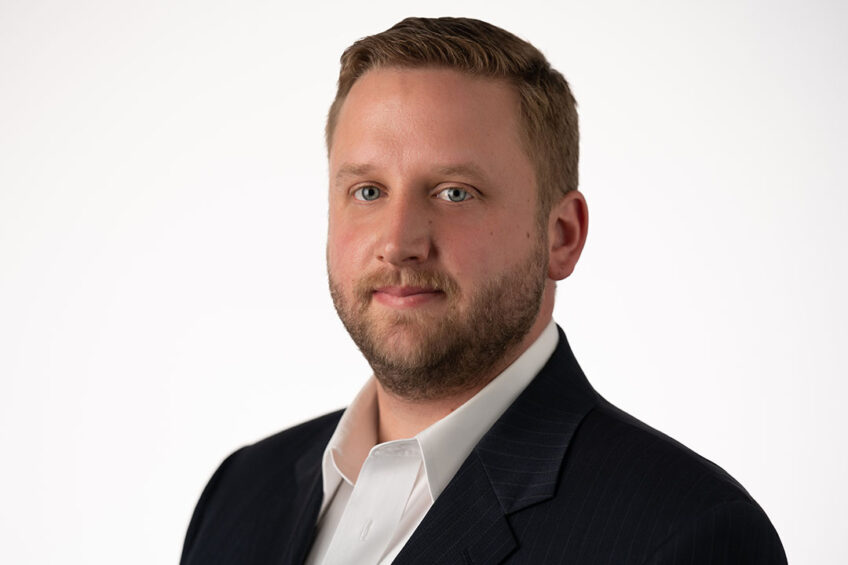“Driving sustainability through transparency”

‘How to create a common language, common metrics and common indicators throughout the entire value chain in a way that builds trust and consensus across the different stakeholder groups’ was the challenge committed to by the US Roundtable for Sustainable Poultry & Eggs (RSPE).
Executive director, Ryan Bennett, comments on the creation of a first-ever full supply chain sustainability reporting framework.
“Within our industry and beyond, sustainability is a top priority. However, at the same time it is a topic which is so complex that it is hard to fully comprehend, let alone find common ground to move forward. As a result a lot of people are operating in a vacuum in terms of the conversations that they’re having across the value chain. This made us realise that there is a really big opportunity here to talk about sustainability in a way that breaks open the discussion and allows people to recognise that sustainability is complex,” he said.
The one thing everyone needs but nobody has
But Bennett emphasised that there needs to be common ground. “And that’s why we set out to develop our framework. We’ve built the one thing everyone needs but nobody has yet. With the US Roundtable for Sustainable Poultry & Eggs (US-RSPE) framework metrics, organisations will be able to provide transparent reporting on their sustainability and build plans to improve. We developed it for the full US supply chains for chicken, turkey and eggs, from producer to final customer. This assessment will enable the entire value chain to communicate better with its stakeholders about the overall sustainability of US poultry and create a clearer picture of how these products are produced.”
From an idea to practical application
“The framework has moved from ideation, which began in early 2019, to practical application. There have been 3 full US supply chain pilots (broilers, eggs and turkeys) that have been completed with input from leading companies, including Butterball, Cal-Maine Foods, Cargill, Darling Ingredients, Herbruck’s Poultry Ranch, Iowa Turkey Federation, Kreher’s Family Farms, McDonald’s Corporation, Peco Foods, Sanderson Farms, Tyson Foods and West Liberty Foods. The pilot companies tested the framework’s metrics to ensure they were effective and implementable ahead of the anticipated full launch to the industry early next year.”
“We set up US-RSPE to be different – and you can see that in our structure.”
Reporting structure
“There are several sustainability assessment resources available but the poultry sector needed a reporting structure that tackled the complexities of the full supply chain. We set up US-RSPE to be different – and you can see that in our structure. Those raising the birds worked side-by-side with their supply chain and environmental groups who have specific expertise in sustainability programmes.
“We are at the start of an exciting journey which has begun in the US”
This dynamic allows the framework to be meaningful to the people implementing it and relevant to those who want to know more about how their food is being raised. Consumer-facing retailers and restaurants are active in US-RSPE work and stress the importance and need for greater transparency at individual and supply chain levels. In addition to providing individual reports to participants, the US-RSPE will report on the performance of the full supply chains.”

“The framework includes sustainability measures across 3 main areas, these being poultry, planet and people, and 13 priority areas – identified through a rigorous multi-year working group process with the entire supply chain represented – that are crucial to increasing trust among consumers of US chicken, turkey, and eggs. Diverse input was gathered to ensure the framework would be effective and implementable. The multi-stakeholder structure of US-RSPE members that built the framework included retailers, food service companies, breeders, hatcheries, feed manufacturers, farm operators, processors, renderers, integrators and NGOs.”
The goal to improve the sustainability parameter through transparency
“We came up with a structure which reports back in detail to individuals and guarantees anonymity if shared within the supply chain, unless the links in the chain decide otherwise. We do see that the participants come to us with an open mind, wanting to share and improve, and that is exactly what we want to achieve.
Blueprint for sustainable egg production
Egg farmers of Canada has released its first Sustainability Report, outlining how egg farmers there are investing in and implementing sustainable technology and practices. The Report also covers initiatives and programmes that set out new opportunities for the future. Read more…
Our goal is to improve our sustainability parameter through transparency. Everyone in our industry knows that we have an edge when it comes to sustainability. For example, it takes 36% less greenhouse gas, 39% less energy, 58% less water and 72% less land to produce a pound of chicken today than it did in 1965.”
Improving over time
“The framework itself will communicate our successes and efficiency but it also will show that we are getting better over time. We should not shy away from identifying and sharing where we can do better. We aim to spotlight innovations and best management practices and within our network share actions to further improve our sustainability outcomes. We believe sustainability success starts with measurement and is improved by investing in work that improves sustainability for our poultry, our planet and its people. Now is the time to connect with us and stay tuned for opportunities to take an active role in shaping what our future will look like. We are at the start of an exciting journey which has begun in the US, but which I can see crossing borders as well.”












